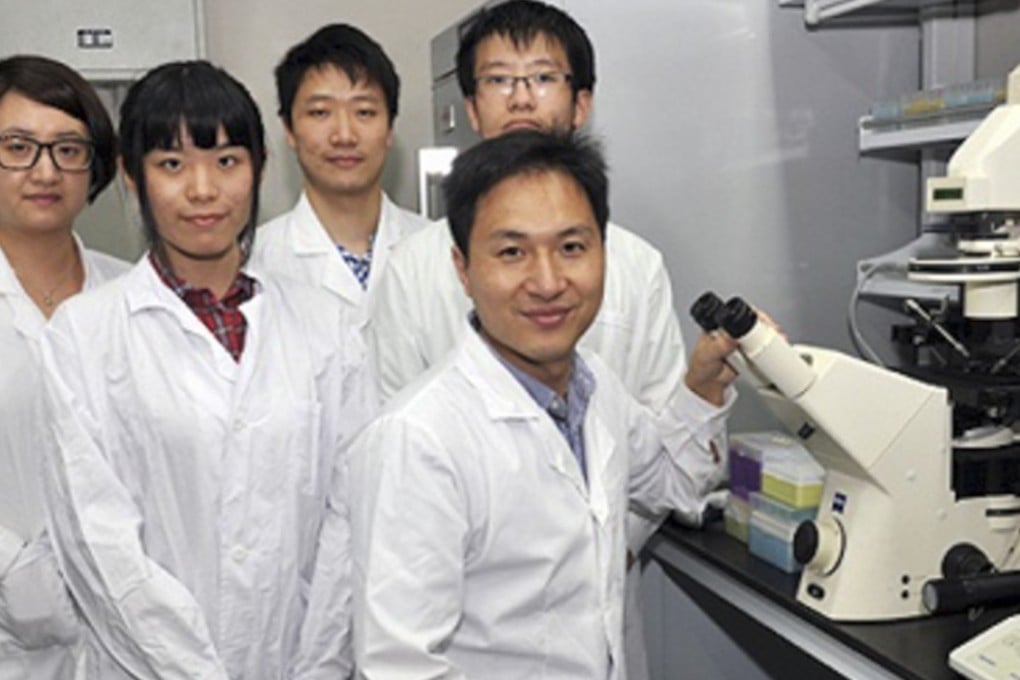China’s gene editing Frankenstein He Jiankui, dubbed ‘mad genius’ by colleagues, had early dreams of becoming Chinese Einstein
- Controversial scientist facing international condemnation for ‘crazy’ and ‘unethical’ human experiment came from humble beginnings
- Gave up physics when he realised its ‘golden era was over’

The man who shocked the world with claims to have created the first genetically edited humans – HIV-immune twin girls – has been dubbed China’s Frankenstein. But in his school days he had dreams of becoming the country’s Einstein.
He Jiankui, described by colleagues as a “mad genius”, had an early interest in physics. As a high school student he maintained a small laboratory at home, he told the Thousand Talents Programme magazine earlier this year.
He was born in Xinhua county, Hunan province – one of southern China’s poorest regions – to a farming family. Despite his humble background, he worked his way up to the best high school in the county, according to a report by online news platform Jiemian.com.
Chinese scientists condemn ‘crazy’ and ‘unethical’ gene-editing experiment
He went on to graduate from University of Science and Technology of China with a physics degree and, armed with a state scholarship, travelled to the US to pursue his dream.
But, once there, his Einstein ambitions evaporated when, He said, he realised the “golden era of physics was over”.
Instead he switched disciplines, studying biophysics at Rice University in Houston, where he first worked with CRISPR, the gene editing technology used to create the HIV-immune twins.
He then moved to Stanford University, where he studied with Stephen Quake, a professor of bioengineering and applied physics, who specialises in DNA sequencing but not gene editing.